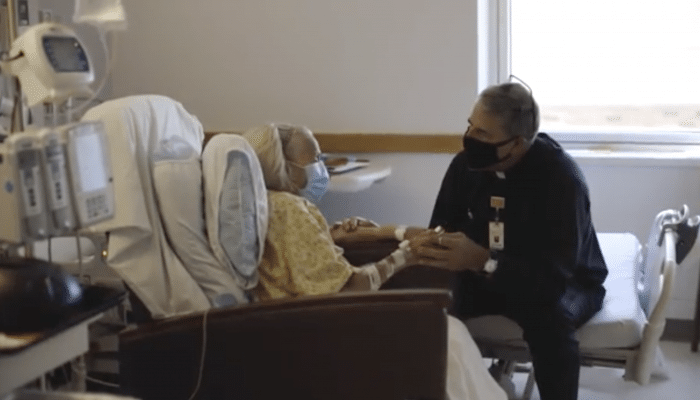Serving Patients and Families during COVID-19
The ministry of presence and prayer is always an integral part of a hospital chaplain’s role, but even more so during the pandemic.
Anne Petratis is a longtime chaplain who currently serves at six medical facilities: Kettering, Grandview, Southview, Sycamore, Kettering Behavioral Health, and Soin hospitals, all in the Dayton area.
“Our ministry is constantly changing to provide support between the hospitals,” she said.
This includes offering services with fewer people, since volunteers were furloughed early in the pandemic. “It’s basically me and Father Basil Toan Quang Doan (Chaplain/Moderator of the Catholic Vietnamese Community of Dayton),” Petratis noted. “We are also blessed to be able to bring in a rotation of priests to administer the Anointing of the Sick when needed and are thankful for their help.”
Particularly meaningful for Petratis has been seeing “how hungry and thankful people are for Communion. We see this with our patients and our staff. When we were on lockdown and I was able to bring Communion to the hospital, people were so thankful to be able to receive the Eucharist. The reaction that I received the most was for them to cry. It meant so much to be able to bring them Communion and to pray with them and to listen to the story of all that they have been through during this time of isolation. This has been one of the most sacred parts of the past year for me.”
One aspect of her ministry that has changed, said Petratis, “is how we minister to the families and the loved ones of those who are in the hospital. This has been such a difficult year for families. If their loved one is coming to the hospital from an extended care facility or a nursing home, the family may have not seen him or her for months. I was with a woman who had not seen her dad, who came in from a nursing home, for over nine months. When she saw how wasted away and confused he was, she just broke down and cried. It was heartbreaking. This has been a pretty common experience throughout the pandemic.”
“I do so many more phone calls now to family and sometimes friends from all over the country,” she added. “For families with loved ones on the COVID-19 unit, it is often me reaching out to let them know we are here, that we will try to visit as we are allowed, and that we have priests who are willing to come in if their loved one needs to be anointed. And a lot of time, it is having prayer with the loved one by phone sometimes if their family member is dying, or I meet them when they come into the hospital to say their final goodbyes.”
During these challenging times, said Petratis, support from the general public is critical, especially prayer: for hospital staff to say healthy and able to continue to serve; for the patients who are feeling fearful and alone and for treatment that will save more lives; and for family members grieving the loss of a loved one.
“Their grief is often more complicated in many ways,” she explained. “Not being able to be with their loved one through their illness and at the time of their death is a heavy burden for many. We are praying that our support and prayers may bring them some comfort, healing and hope as they grieve.”

